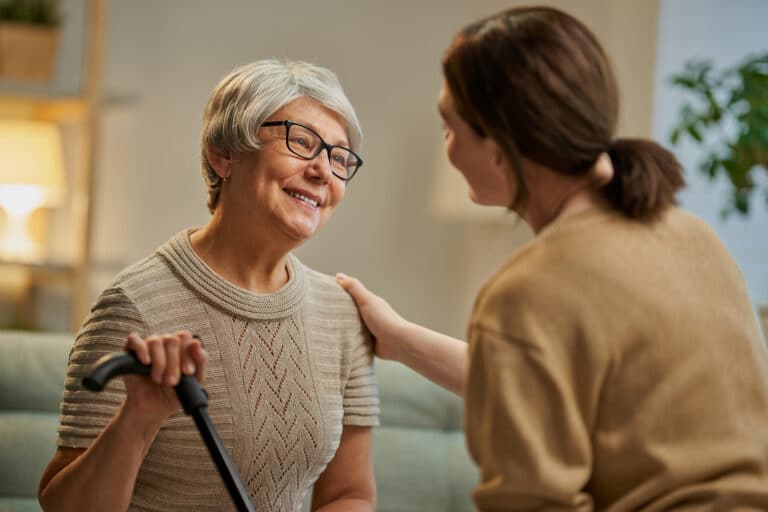Recovering from a stroke is a complex and often lengthy process that requires comprehensive and coordinated care. For many stroke survivors and their families, the comfort and familiarity of home can provide a conducive environment for recovery. Stroke care at home providers play a crucial role in facilitating stroke recovery at home, offering a range of services that address both physical and emotional needs.
Below are five key services that professional providers offer to support stroke recovery at home.
Key Service #1: Home Care Providers for Daily Assistance
Home care providers, also known as personal care aides or home health aides, are essential in helping stroke survivors with daily activities. These professionals assist with tasks such as bathing, dressing, grooming, and meal preparation, which can be particularly challenging for individuals who have experienced a stroke.
Stroke care at home providers ensures that stroke survivors can maintain a level of independence while receiving the necessary support to complete daily routines safely. They also offer companionship, which can help alleviate feelings of isolation and depression that are common during the recovery process.
Key Service #2: Physical Therapy for Mobility and Strength
Physical therapy is a critical component of stroke recovery, aimed at improving mobility, strength, and overall physical function. Physical therapists work with stroke survivors to develop personalized exercise programs that target specific impairments, such as weakness, balance issues, and limited range of motion.
These professionals use a variety of techniques, including stretching, strength training, and balance exercises, to help stroke survivors regain their physical capabilities. Physical therapists also educate patients and their families on safe mobility practices and strategies to prevent falls. Regular physical therapy sessions at home provide a convenient and comfortable setting for stroke survivors to work towards their recovery goals.
Key Service #3: Speech Therapy for Communication and Swallowing
Many stroke survivors experience difficulties with speech, language, and swallowing, which can significantly impact their quality of life. Speech therapists, also known as speech-language pathologists, specialize in addressing these issues.
They work with stroke survivors to improve their ability to communicate effectively, whether through speech, writing, or alternative communication methods.
Speech therapists also provide therapy to address swallowing difficulties, known as dysphagia. This can involve exercises to strengthen the muscles involved in swallowing and techniques to ensure safe eating and drinking.
Speech therapy at home allows stroke survivors to practice these skills in their everyday environment, making the therapy more relevant and effective.
Key Service #4: Visiting Nurses for Medical Care and Monitoring
Visiting nurses, also known as home health nurses, play a vital role in managing the medical aspects of stroke recovery. These professionals provide a range of services, including administering medications, monitoring vital signs, and managing chronic conditions.
They are trained to recognize and respond to potential complications, ensuring that stroke survivors receive timely and appropriate medical care.
Visiting nurses also educate stroke survivors and their families on how to manage health conditions and prevent future strokes. This includes guidance on medication adherence, dietary modifications, and lifestyle changes.
The presence of a visiting nurse can provide peace of mind for both the patient and their family, knowing that medical support is readily available.
Key Service #5: Occupational Therapy for Daily Living Skills
Occupational therapy focuses on helping stroke survivors regain the ability to perform daily living activities independently. Occupational therapists assess the functional abilities of stroke survivors and design personalized intervention plans to improve skills such as dressing, cooking, and using the bathroom.
These professionals also recommend and train stroke survivors on the use of adaptive equipment, such as grab bars, shower chairs, and modified utensils, to enhance independence and safety at home.
Occupational therapy sessions at home allow for the direct application of techniques and strategies in the patient’s living environment, making the therapy more practical and effective.

Stroke recovery is a multifaceted process that benefits immensely from the coordinated efforts of professional providers. Stroke care at home providers, physical therapists, speech therapists, visiting nurses, and occupational therapists each bring specialized skills and expertise to support stroke survivors in their recovery journey.
By receiving stroke care at home, stroke survivors can recover in a familiar and comfortable setting, surrounded by their loved ones.
This comprehensive approach not only enhances the quality of care but also promotes a more holistic and patient-centered recovery process. Families can take comfort in knowing that their loved ones are receiving the best possible support, allowing them to focus on providing emotional encouragement and maintaining a positive home environment. With the right stroke care a home, stroke survivors can achieve significant improvements in their health and quality of life, making home-based recovery a viable and effective option.
If you or an aging loved one are considering Stroke Care at Home Services in Weston MA, please get in touch with the caring staff at Care Resolutions, Inc. today. (508) 906-5572
CARE Resolutions, Inc. provides quality 24-Hour Home Care for seniors and families in Walpole, Dover, Wellesley, Framingham, Norfolk, Quincy, Weston, Medfield, Boston, Sherborn MA, and surrounding areas.
- Movement Symptoms of Parkinson’s Disease That Make Walking Difficult - April 21, 2025
- Tips for Seniors Who Want to Try Social Media - April 7, 2025
- How Can Seniors Transition Home from the Hospital Smoothly? - March 19, 2025



